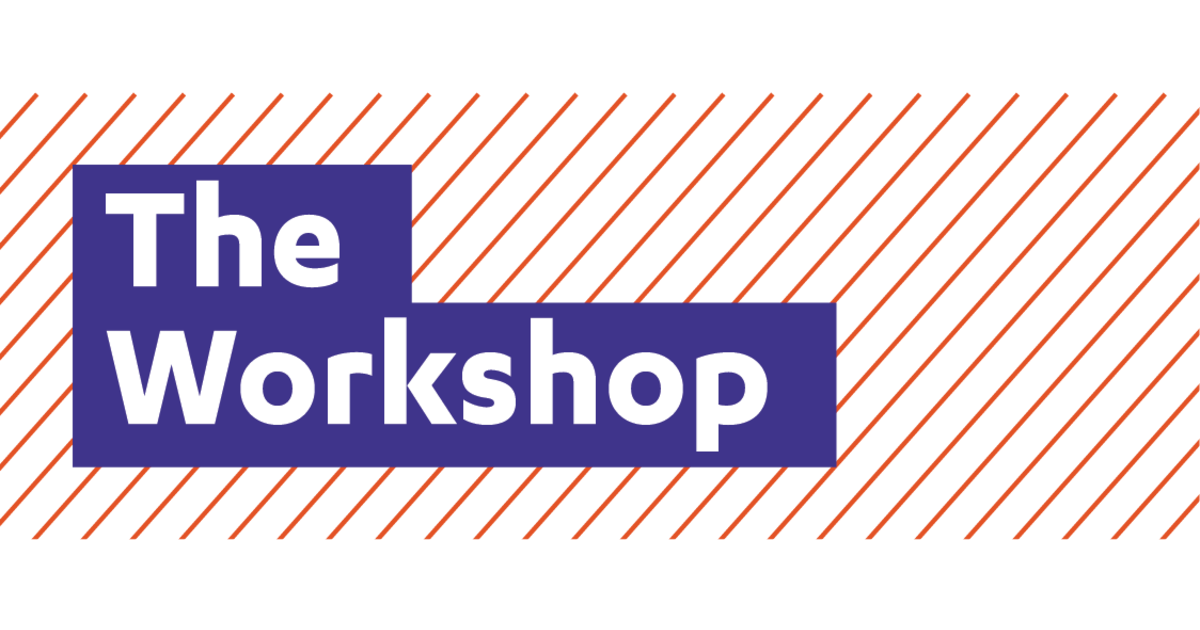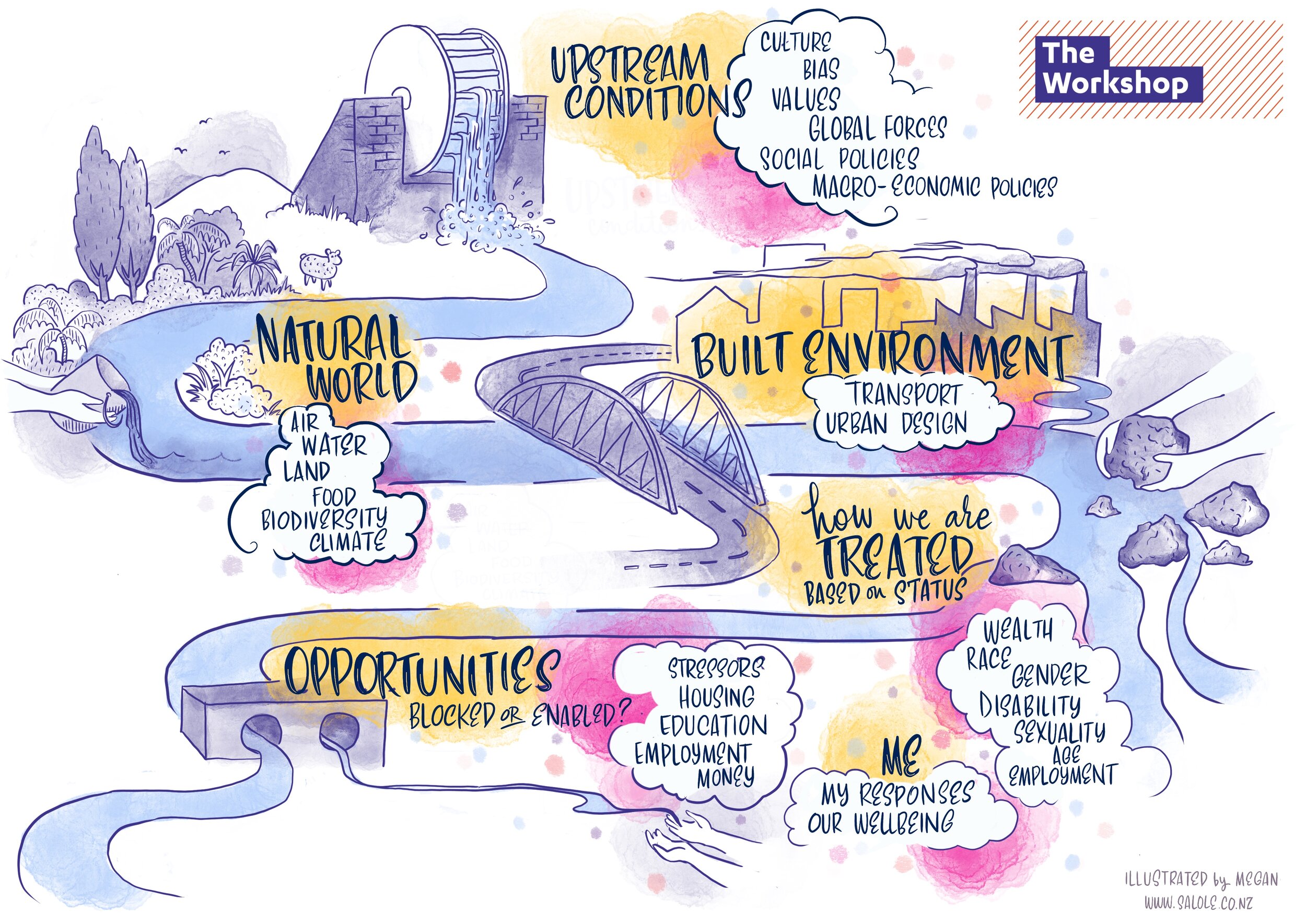Kia ora from Marianne,
Unless you’re an essential worker (in which case, thank you!) you’re probably trying to work from home right now. Which is difficult in different ways for each of us. But we’re doing it. We’re staying home. Parenting and caring for others. Juggling all the things. Worrying we aren’t doing any of them well enough. Missing the people and places we love.
Why are we all doing this hard thing?
One of the strongest motivators for all of us to stay home right now is knowing that this is the best thing we can do to keep everyone in our communities safe and well.
We are doing this because, despite our differences, most of us care a lot about each other.
In our Narratives for Change workshop, we show a graph of the values prioritised by people in a representative sample of New Zealanders. It shows that the vast majority of people in the sample prioritise our shared wellbeing more than personal success, and caring for each other and the planet over accumulating wealth or social power.
This helps to explain why clear messaging that frames staying at home as an act of care for others, has been so effective. But it also begs the question: if we all care so much about collective wellbeing, why is it so hard to get support for some of the changes that will make the biggest difference to people and the planet?
Part of the answer to this question is that we all hold many different values, and the context in which we are making a decision significantly influences which of these many values we prioritise in that decision. People will make a decision using the value that has been brought to the surface for them.
For example, if I have been repeatedly told that the reason I should care about climate change is the economic cost of inaction, then when I make decisions about my support for big climate actions or policies, I’m likely to consider them in terms of money. Research has shown that thinking about the economic cost or benefits of a decision is more likely to motivate me to do things for my individual personal benefit, and less likely to motivate me to support things for collective benefit.
What this means for people trying to deepen public understanding of complex issues and build support for the big changes that will make the world a better place is that we should always offer people intrinsic, collective reasons to care and act.
This month’s newsletter has a selection of articles and reports from our own research and others’, which will give you concrete examples of how you can use intrinsic, collective values to motivate people and build support for those big changes that we need to make for our shared wellbeing.
Take care,
Marianne
Crafted at The Workshop
Talking About Early Brain Development in Aotearoa New ZealanD
The Workshop has developed a report on how to talk about early brain development in Aotearoa New Zealand to build greater awareness of brain development and how to support it in the early years. This was commissioned by the Child Wellbeing Unit of the Department of the Prime Minister and Cabinet and followed a two day brain development collective wānanga held in March 2021. The wānanga brought together non-government service providers and designers, government and philanthropic funders.
The purpose of this report is to provide a partial map of the current territory of public narratives and mindsets around early brain development, explain guiding principles for deepening understanding of the issue through more effective narratives, and propose some communications strategies. We have also recommended some potential next steps in this narrative shift work.
You can read the full report here:
Reframing systems change: Changes that make the biggest difference
Throughout our research project ‘How to Talk about Systems Change’ we heard about how everyday life could be much better, for so many more people, once the changes we are working toward have happened and our human-built systems have been redesigned to prioritise people and te taiao. We were reminded of how critical this work is, yet how challenging it can be to communicate.
To get there, the knowledge holders we spoke with identified the need to build a shared understanding of what systems change means among our community of practice. In our upcoming report, we follow the framing advice of UK researchers in reframing systems change as the changes that make the biggest difference - and offer the upstream/downstream metaphor of an awa or river as a way of explaining the changes we are working towards, and why they are important.
Explaining the upstream/downstream metaphor
Downstream, where most people stand, are all of the visible problems we collectively wish to overcome. As we walk upstream we can see the social, environmental and cultural conditions that shape our lives and experiences. For example, the way in which people in our public institutions treat us, our information environment, how our transport systems and cities are built, the policies the government puts in place (or doesn't), the rules of the economy, and our cultural beliefs and values. Extensive bodies of research show us that, in changing some of these upstream conditions, we can make the biggest improvements to the most people’s lives over the longest timeframe, for the least individual effort. In making the changes that make the biggest difference, we are helping to shift the status quo of downstream responses to create change through upstream solutions.
We’re looking forward to sharing the full report in the coming months, and in the meantime, hope this helps to explain the important work you and your teams are doing to make these upstream changes happen.
Mobility As a Matter of Justice; The Benefits of a Car-Free Future
Playgrounds, plants, trees and benches are a few of the ways Oslo, the capital city of Norway, changed their infrastructure to prioritise the public. Car-parks have been removed and replaced with public spaces. Streets have been rezoned into pedestrian ways and cycle paths, and public transport in the city center has been boosted.
Jess Berentson-Shaw talks to Neil King in his podcast ‘On The Green Fence’ and discusses the positive impact reducing cars in New Zealand can have on the environment and our communities. Currently our infrastructure makes it difficult and unsafe for disabled, elderly and young people to navigate our big cities. Listening to those most excluded from our transport system and understanding how we can build transport systems that deliver for them, will lead to the most cutting edge, innovative solutions to our transportation challenges.
Prioritising pedestrians and cyclists within our urban centres, shifting away from car-centric cities, will bring huge benefits to our health and climate. The government needs to focus on centering active and public transport as an alternative to cars.
We expand further on how to bring intrinsic values to the discussion around transport in our guide How to Talk About Urban Mobility and Transport Shift: A Short Guide, 2020. We discuss how our perceptions about what people value are often incorrect. This is due to dominant cultural narratives and discourses that surface values relating to wealth and success. Instead, research shows that what matters most to people, is taking care of each other and the planet.
Extrinsic values focus people’s thinking on short term financial win or loss and aligns with the dominant narrative; in this example, that more roads are needed to fix our transport issues. Instead, lead with values of independence and autonomy; a safe environment for our children to walk and bike independently on our streets.
Listen to Jess Berentson-Shaw discuss further in the link below. https://open.spotify.com/episode/1PnPN6enceIQhFNURgF2PP
Image: Retrieved from Independent UK (Car free streets in Oslo, Norway)
Notes from the Narrative Movement
Making Our Streets Safer: How Deaf and Hard of Hearing Communities Access Urban Areas
We are currently working on how we can communicate changes to open our streets to people who use bikes, walk and who use public transport. Making our streets open to people of all abilities is a critical part of these changes. Our streets are closed for too many people due to the prioritisation of private cars. Here is a really interesting piece by Camilla Payne on how we can make sure streets and urban are open to people who are d/Deaf and hard of hearing (d/DHH).
Narratives at Work
Why You Should Lead With Values of Independence and Autonomy
We want a world where all children have the freedom to travel easily and safely, with the ability to visit their friends or attend free time activities without their parents.
When discussing transport, leading with values that bring helpful thinking to the surface is vital in building public support for systems change. These include: Freedom, autonomy and independence, inclusion, connection to community and responsible management of the environment. We need to shift away from narratives based on money and economics. Dominant narratives typically focus on short term financial win or loss. Advocates and researchers know how harmful this can be. Instead, lead with values of independence and autonomy. For example, we can give our kids independence to get around their streets and enjoy the freedom of being kids.
The Urban Cycling Institution has done a great job at leading with intrinsic values over economic reasoning. They lead with the value and vision of autonomy, providing valuable information that proves it is possible to create a city which is designed to support our children’s autonomy.
Source: City of Copenhagen (2021) Via Urban Cycling Institute
For more guidance on narratives around topics such as transport, climate change, justice reform, and more, visit our website - we have freely available message guides.
If this email was forwarded to you, you can get future emails like this by signing up here.
Get in touch with rachel@theworkshop.org.nz if you would like to talk to us about how we can help you with specific advice or do training for your team.
Marianne, Jess, Sharon, Lucia and Rachel, at The Workshop





